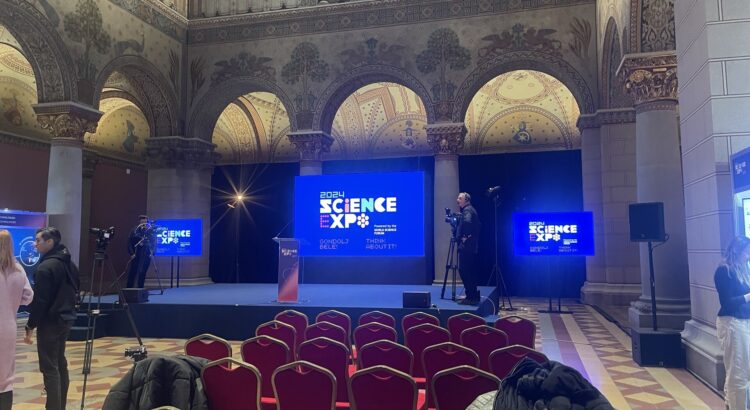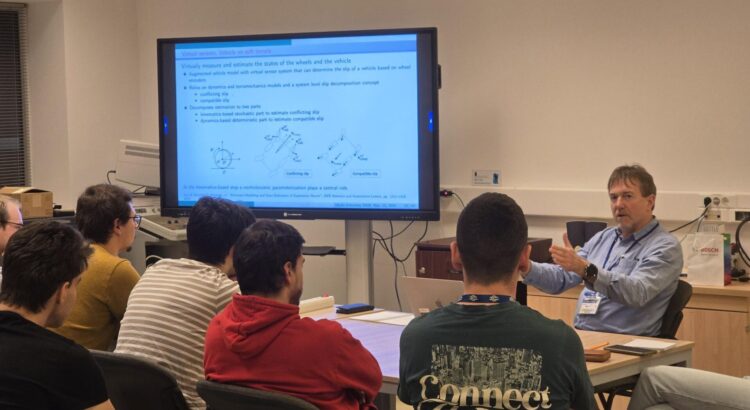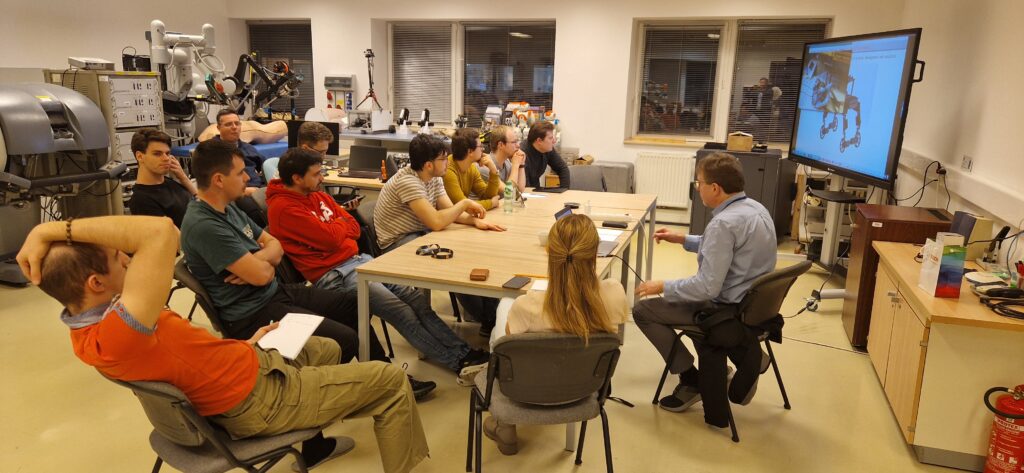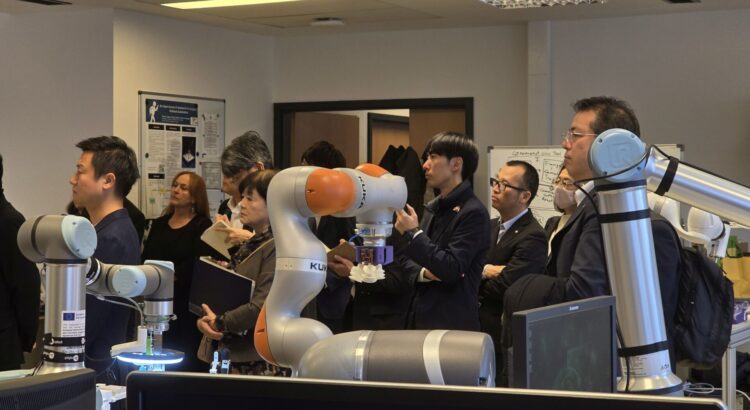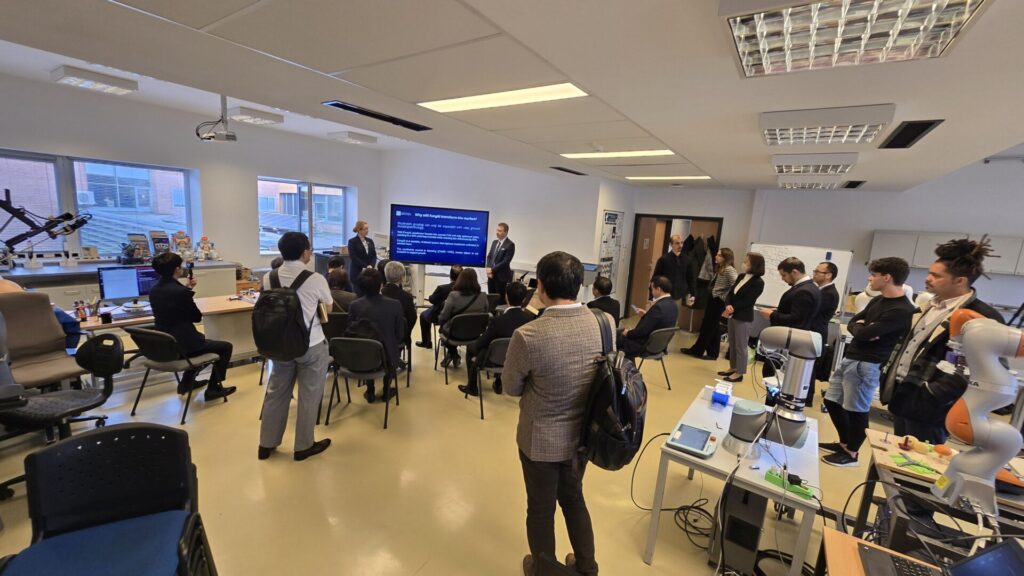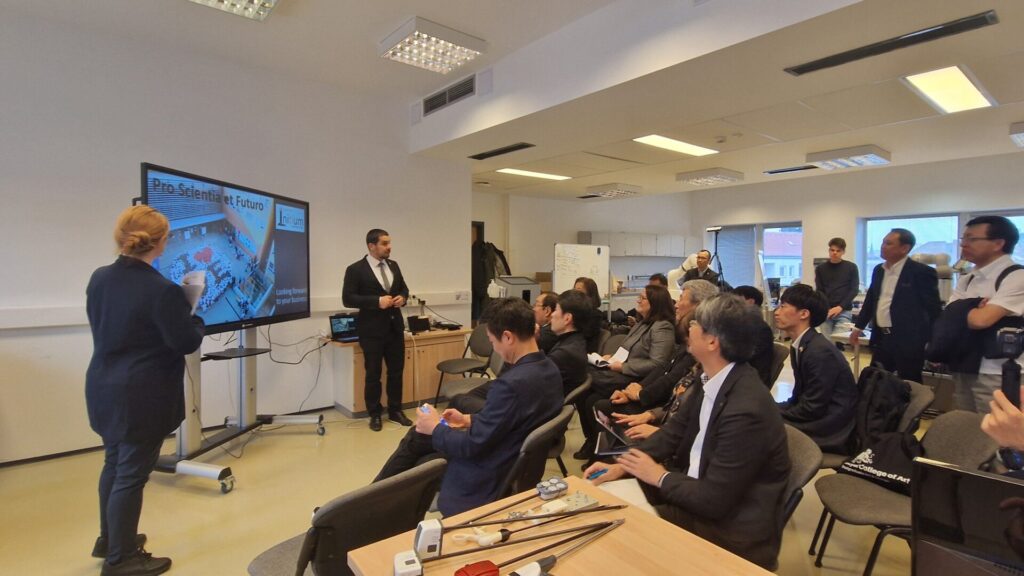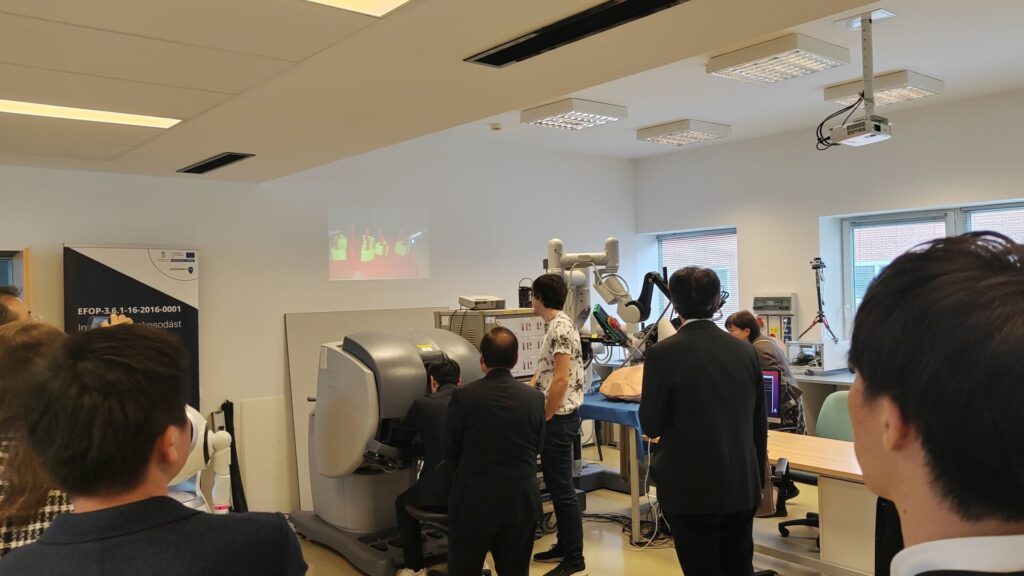As part of one of the world’s most significant science policy conferences, the World Science Forum, the Science Expo 2024 was held from November 21 to 23, organized by the Hungarian Ministry of Culture and Innovation. The event took place at the Museum of Fine Arts, where Obuda University’s Antal Bejczy Center for Intelligent Robotics and BioTech Research Center successfully represented the university. The expo aimed to present the outstanding achievements of Hungarian science, research, and talent development in an accessible and visually engaging way to a broad audience. Several renowned universities and research institutes co-organized the event, highlighting the cooperation and collaboration within the scientific community.
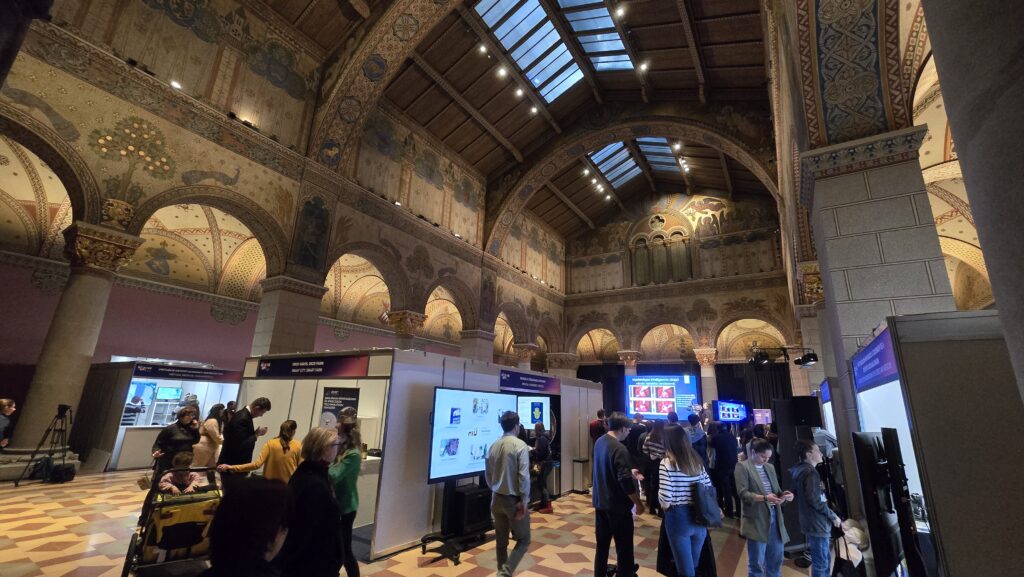
Obuda University’s goal at the event was to showcase its latest scientific and technological advancements and provide an opportunity for those interested in science to explore the newest innovations. From the IROB Lab, the SlideBot robot, capable of handling pathological slides, demonstrated one application of robotics in medicine. Meanwhile, from the BioTech Research Center, the PathoVR system (www.pathovr.com), a tool used in digital pathology, was exhibited. PathoVR enables interactive viewing of pathological samples in a VR environment, and visitors had the opportunity to try the system live.
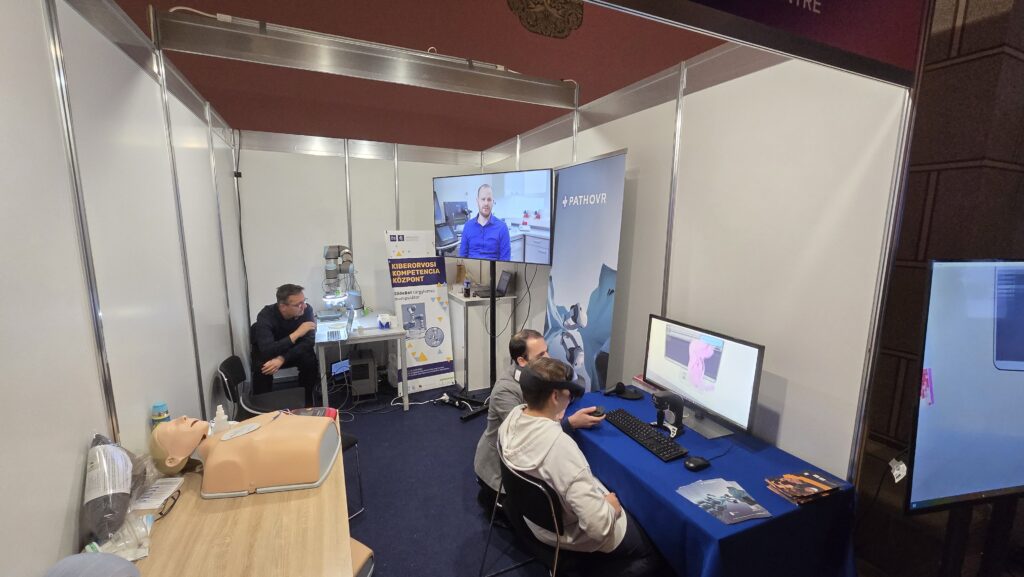
During the three-day event, a large number of visitors stopped by our stand, from the youngest to the elderly. We were particularly pleased to collaborate with the teams of Semmelweis University and the National Institute of Oncology to present our developments. Continuous presentations and panel discussions held in various rooms of the museum further enhanced the quality of the event.
The highlight of the event was undoubtedly the lecture by Nobel laureate Ferenc Krausz, held on Friday evening. The talk attracted immense interest and drew a large audience.
On Friday evening, a gala dinner provided participants with an opportunity for informal discussions and exchanges of experiences. The event was a success overall, and our university proudly represented itself at this prestigious conference.
We extend our thanks to everyone who visited our stand and showed interest in the technologies we presented. We look forward to participating in similarly inspiring events in the future, where we can showcase our latest developments and jointly promote scientific progress.
